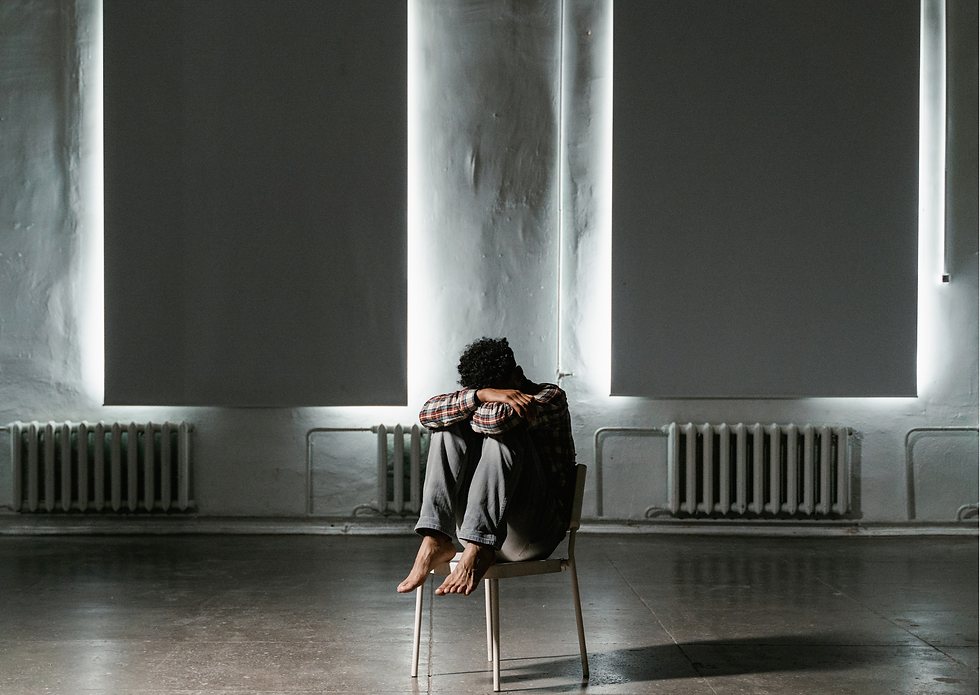Social Anxiety: The Root Cause and Therapeutic Intervention
- Admin

- Dec 7, 2022
- 2 min read
Social anxiety, also known as social phobia, is an intense fear of socializing or being in a situation where one feels vulnerable to criticism or embarrassment. People with social anxiety often avoid being in situations where they need to interact with others socially or be at the centre of attention. They live in extreme fear of being unable to meet expectations and are thus at risk of being criticized, judged, or embarrassed. These fears also lead them to avoid a situation like attending a job interview, meeting new people and taking on a task which requires them to be subject to being at the centre stage, such as giving a work presentation. Most people with social anxiety recognize when their fear is irrational. However, the fear is so intense that they feel powerless to manage the anxiety. Social anxiety frequently manifests into physical symptoms, such as:
Excessive sweating, trembling,
Difficulty breathing or shaking.
Being highly self-conscious in social situations
Feeling very uncomfortable or shy when being watched
Often avoiding eye contact with others
Feeling apprehensive that others will notice you
Overthinking about how you behaved or criticizing your behaviours related to an interaction
Expecting the worst possible outcomes that could happen during a social situation
People with social anxiety struggle with low self-esteem, intense self-criticism, negative self-talk, and sometimes depression. Social anxiety hinders individuals from living life to their best potential or trying new things.
The cause of social anxiety varies. While some social anxiety is biologically inherited or has an overactive amygdala, which is a heightened response to fear, social anxiety is usually caused by being subjected to the traumatic experience of shame and intense embarrassment. Children whose parents are overly critical, comparing or abusive, and children who experienced bullying, extreme teasing and public shaming are vulnerable to developing social anxiety when they grow up.
The primary treatment for social anxiety is psychotherapy, although it may be necessary to use the medication in some situations. Well-known therapies for treating social anxiety include Cognitive Behavioural Therapy (CBT), Exposure Therapy, and Choice Theory Reality Therapy (CTRT). Therapists using these modalities process cognitive distortion and behaviour, which hinder people with social anxiety. There is also trauma-informed psychotherapy like Eye Movement Desensitization and Reprocessing (EMDR), which treats the traumatic experience that triggers social anxiety.
Restoring Peace Counselling and Consultancy offers EMDR and other counselling and psychotherapy services for anxieties and other mental health challenges. For more information, please visit www.restoringpeace.com.sg or WhatsApp at +65 8889 1848.

Keywords: Singapore, private mental health clinic, counselling, therapy, counsellor, therapist, social anxiety, treatment









Feeling intense fear or anxiety about being in places that are hard to escape from can be incredibly limiting. If you're concerned this might be agoraphobia, an online screening can help. A good agoraphobia test can help you assess your symptoms.